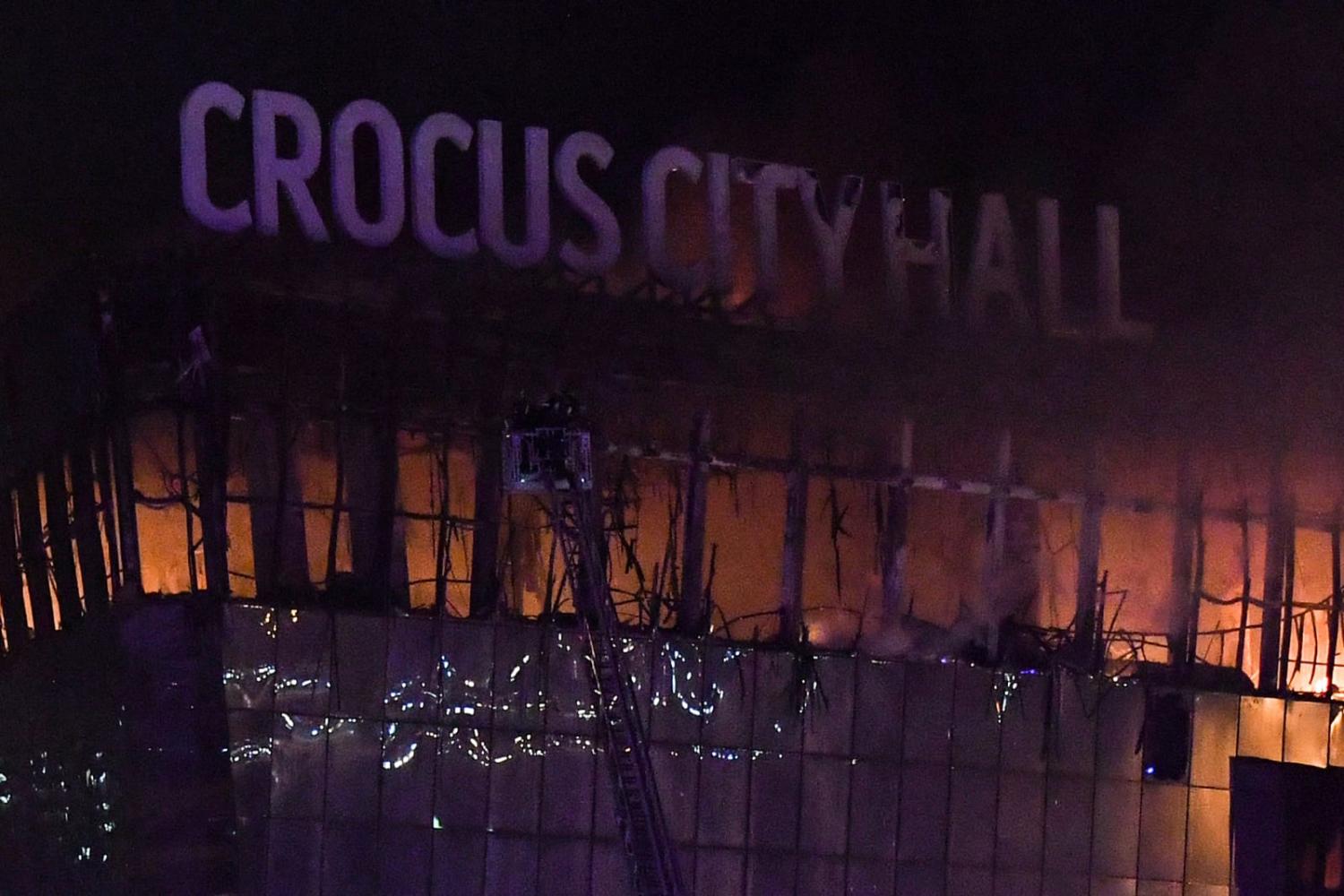President Vladimir Putin has long sought to restore Russia’s global status after the personally and nationally humiliating defeat of the Cold War. One of the ways he has done so is through Russia’s involvement in the Middle East – highlighted by Russia’s 2015 military intervention in Syria but also evidenced in many other ways. By acting as a spoiler in Afghanistan, Putin also sought to accelerate and take advantage of the United States’ own humiliating withdrawal from the region to shore up Russia’s position as a major power.
If global power status is what Russia was after, then the weekend attack by Islamic State in the heart of Moscow was a grim acknowledgment. As Russia became more of a player in the Middle East, a region always at the heart of great power rivalry and asymmetric challenges, it also risked making itself more of a target of terrorist and insurgent forces.
On the heels of Russia’s presidential “election”, gunmen stormed the Crocus City Hall building in Moscow where a sold-out rock concert was being held, shooting concert-goers and setting the building on fire with explosives and flammables. The 22 March attack claimed the lives of 137 people according to the latest counts, with more than 100 injured, many of them critically. It was the deadliest terrorist attack in Russia in more than a decade.
Islamic State Khorasan (IS-K) claimed responsibility for the attack. It is not the first time it has targeted Russia, which includes a 2022 attack on the Russian embassy in Kabul. As the main antagonist and security threat to the Taliban regime, IS-K has likely stepped up its interest in Russia as relations between the Kremlin and the Taliban have warmed. IS-K long denounced Russia for its interventions in the Middle East, particularly Syria and Afghanistan, and its growing cooperation with Iran, another IS-K adversary. It has also condemned the Taliban for betraying Afghanistan by engaging with Moscow.
It was also not the first time that Russia had been targeted by militant Islamists. In the Soviet era, Russia was considered a godless opponent of Islam. Under Putin, who has sought to cultivate the regime’s association with the Russian Orthodox Church, the conflict is framed as a continuation of a historic competition between Islam and Byzantium, in addition to its interventions in the region against Islamist goals. In 2015, the Islamic State was responsible for downing a Russian passenger plane over Egypt. There were a number of other attacks in the Caucasus region for which Islamist jihadists claimed responsibility. For many, the attack was a reminder of the years Chechen insurgents targeted Russia with a slew of terrorist attacks from the late 1990s, 2000s and 2010s.
Despite Russia’s criticisms of the West, one of its goals in the Middle East was in many ways similar to that of the United States and its allies: its actions in the region sought to prevent the spillover of extremism to their own countries. Understanding that Russia was always considered to be a target for jihadists, Moscow sought to pre-emptively thwart future terrorist attacks by jihadist forces by “hitting first”.
But that carries blowback. By becoming more involved in the Middle East, attempting to repel threats from its own borders, it paradoxically invites more. And as Russia has become consumed with the war in Ukraine, it has reduced its bandwidth for the Middle East and monitoring the threats and responses to its position there. Russia’s preoccupations in Ukraine also led to its dismissing intelligence shared by the United States warning of an imminent attack. The Kremlin has sought to link the Crocus City Hall attack to the Ukrainian military, a claim that has gained traction in Russian media where they have barely acknowledged the claims of responsibility made by IS-K.
Islamic State is an opportunistic movement – it will target an opening. With the United States and partners receding from the region and their homeland security hardened, the United States and Western allies have become a less attractive target for Islamic State and other militants. Russia’s security weaknesses go beyond the constraints stemming from its invasion of Ukraine. Like many a despotic regime, Putin’s security establishment is preoccupied with chasing shadows at home and dissidents who challenge the president’s grip on power.
The recent attacks in Moscow underscore that jihadist groups have historically viewed Russia as a primary enemy and target, and even more so since its concerted forays into the Middle East since 2015. Attacks of this ilk have been used by terrorist organisations to signal their capabilities, global reach and relevance. But they also serve as a grim acknowledgement of the regional status that Russia long sought – one of regional power and global player.

